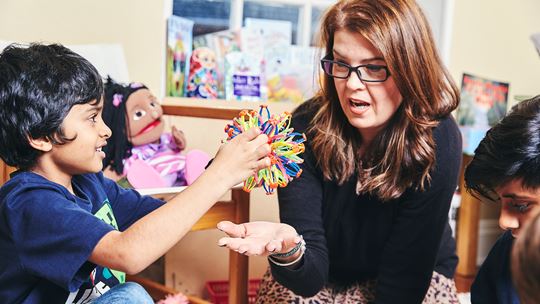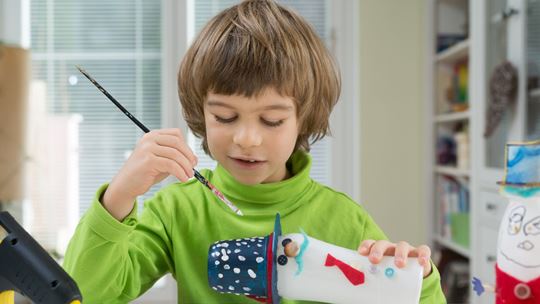Bonfire Night Tips for Children with Autism
Bonfire Night is a fantastic explosion of colours, smells and sounds, but for children with autism, it can be a very stressful time. Follow our tips to make Bonfire Night an enjoyable celebration for all.
Bonfire Night and autism
Children with autism process sensory information differently than neurotypical people. When confronted with new textures or certain sounds or scents, they can have an extreme emotional reaction. This means that all the fireworks, loud music, bright lights, intense burning smells and unpredictable bangs that come with Bonfire Night often make it an extremely distressing event.
If you’re caring for a child with complex needs, it’s important to assess whether celebrating Bonfire Night is the best thing for them. While we always want our neurodivergent children to feel included in celebrations, we don’t want to cause them unnecessary stress and anxiety by exposing them to an overwhelming situation. However, there are ways to make Bonfire Night a safe and positive experience if your child does want to join in the festivities – or if you’re unable to avoid them completely.
Just remember that every child and teenager with autism is different, so follow their lead and go with your better judgement. After all, you know them best.
5 ways autistic children can enjoy Bonfire Night
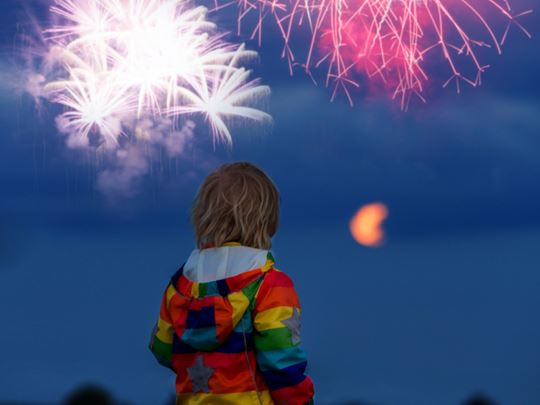
1. Agree a plan and stick to it
Unexpected breaks in routine can be stressful for children with autism, as they find comfort in predictability and familiarity. It helps them feel secure to know what is going to happen. Bonfire Night is unfortunately a night of unpredictability because not everything is in your control. However, careful planning and communication can help you work through those barriers. Make sure your child feels comfortable with what to expect by:
- Showing them videos online of fireworks displays
- Letting them see and hear a sparkler crackle beforehand
- Establishing a timeframe for lighting the bonfire, letting off fireworks and when food will be served
- Involving them in all the planning
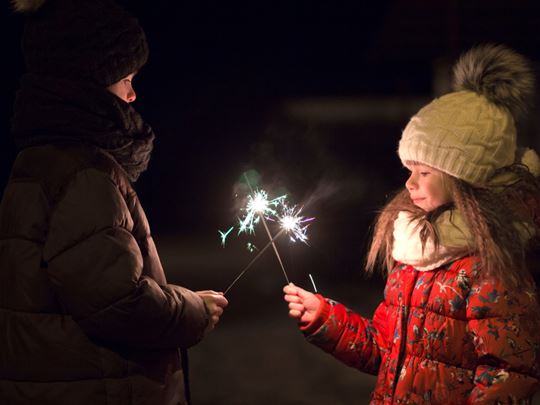
2. Bring their favourite things
Whether you’re celebrating at home or attending a local display, having comforting distractions on hand is a way to establish a sense of calm if your autistic child is becoming anxious. They might want their favourite blanket to rub against their face, or have some sensory pleasing toys they can squish about in their hands. Weighted vests are also known to help children with autism feel calm and focused.
3. Use headphones
Firework displays are full of loud, unpredictable bangs, squeals of excitement and you might have the wind and rain to deal with as well. All of this audio information can be difficult to process for those with sensory sensitivities. Imagine every single sound, from the crackle of the fire to a child laughing, is turned up to full volume – this is often how it feels for autistic people. That’s why noise cancelling headphones help block out unwanted sensory stimuli and provide calm amongst the chaos. Some children might prefer to have music on instead to totally block out the outside world. If this is the case, just be mindful that they won’t be able to hear you when you talk to them, so keep them in close range to keep them safe.
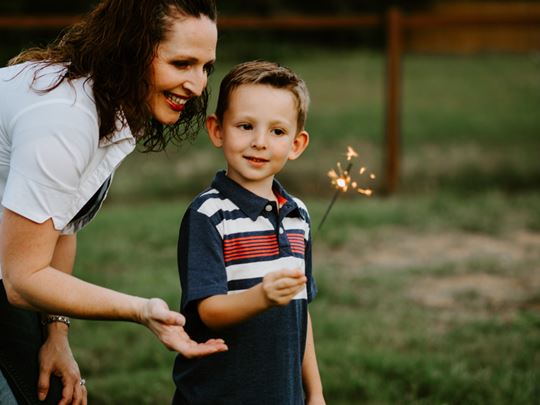
4. Explain safety rules
Fireworks and bonfires might be spectacular and mesmerising to look at, but they pose very real dangers that everybody should be made aware of. Use this time as an opportunity to discuss fire safety with your family, and establish clear boundaries for Bonfire Night. Depending on your autistic child’s fine motor skills and age, sparklers are best handled by a supervising adult, and of course, no children or teenagers should touch any fireworks or light fires.
Also, some children with autism have hyposensitivity, which is under sensitivity to sensory stimulation. This often means they don’t process pain correctly, putting them in harm’s way if they were to touch the lit end of a sparkler, for example. Be sure that everyone is wearing gloves to minimise the chances of getting hurt.
5. Watch the fireworks on TV instead
A safe alternative to Bonfire Night is to cuddle up and watch a firework display on TV. If the sounds get too stressful, you can put it on mute and still enjoy the spectacle from the safety of your sofa. Serve up your autistic child’s favourite snacks to make a night of it so they don’t feel excluded from any fun.
Looking after a child with autism no doubt comes with its challenges, but it’s an incredibly rich and rewarding role. Sadly, there are many children with additional needs who are currently in need of a loving home – many have had extremely difficult starts to life. If you’re interested in the idea of changing a vulnerable child’s life, helping them grow, flourish and reach their full potential, becoming a foster parent might be the best decision you ever make.
Please get in touch today and our friendly fostering advisors will get back to you and gladly answer all your questions. Or, you can download ISP’s Introduction to Fostering Guide for all the information you need about fostering and our pioneering therapeutic approach.



